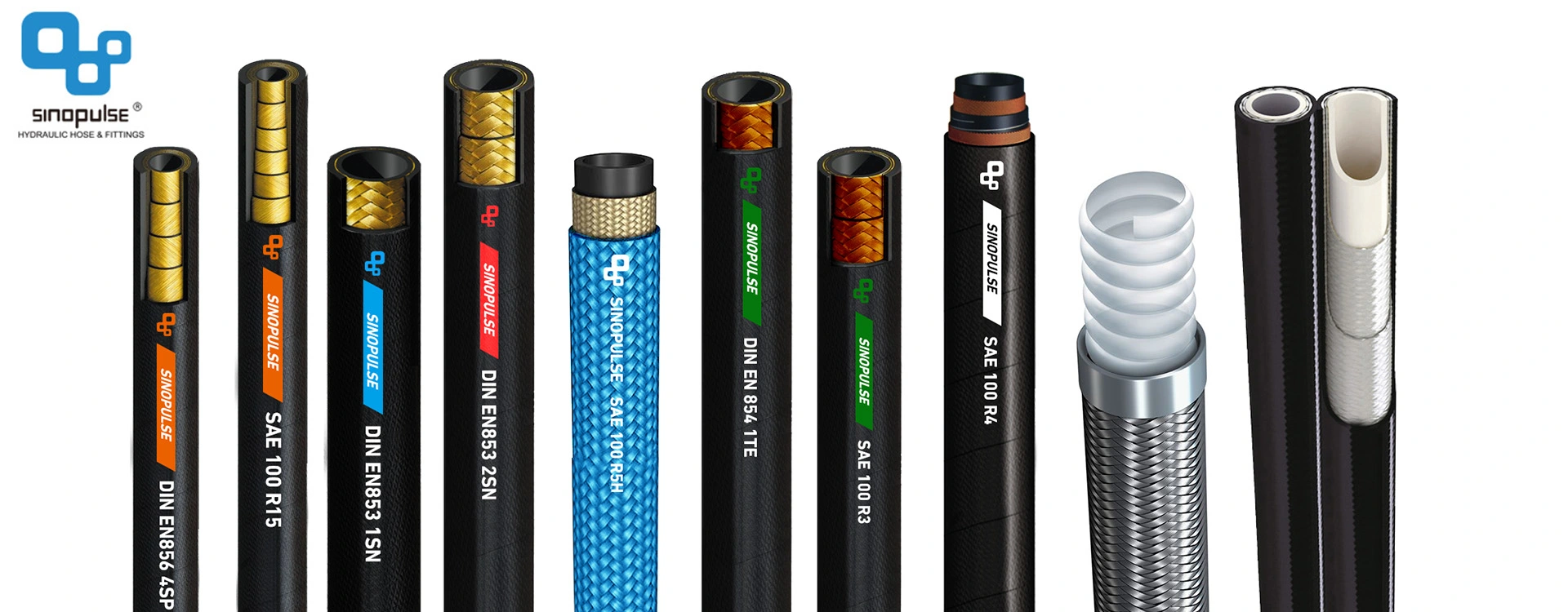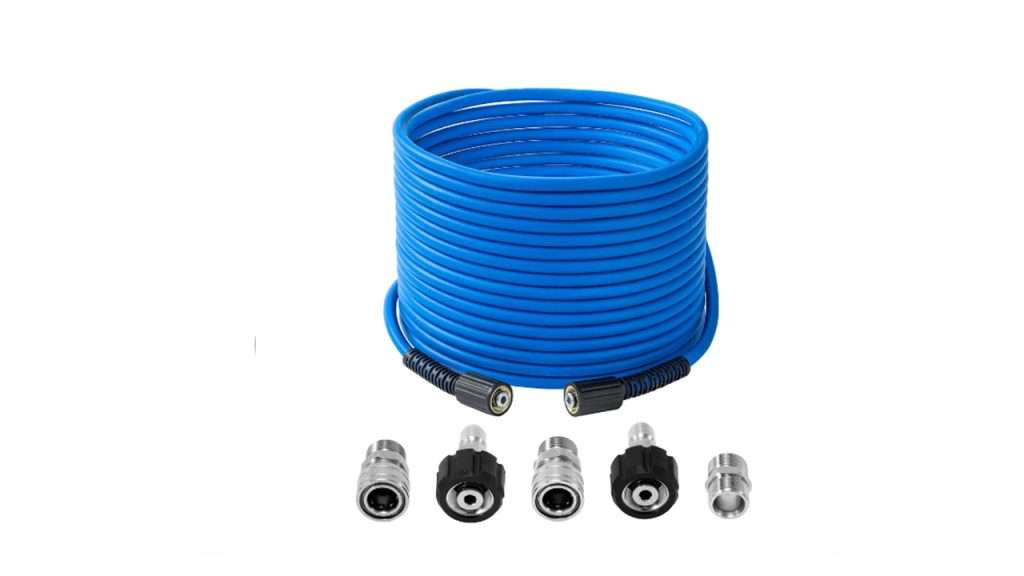Hydraulic hoses and pressure washer hoses are both high-pressure hoses and are heavy-duty, which often leads to confusion. What exactly are the differences between hydraulic hoses and pressure washer hoses?
We will compare the key differences between hydraulic hoses and pressure washer hoses in terms of structure, pressure rating, materials, application, and safety risks, to reduce confusion, and reduce maintenance costs and downtime.
What are hydraulic hoses?
hydraulic hose is used to allow fluid movement—in this case, hydraulic oil—between two port locations in a hydraulic system. Oftentimes, as an added benefit, hydraulic hose absorbs vibration and noise.
Type of Hydraulic hose
Hydraulic hoses can be categorized based on their reinforcement, material, and intended pressure range. Common types include general-purpose braided hoses (single, double, or multi-layer); multi-layer spiral hoses for heavy-duty, high-impact applications; thermoplastic hoses for flexibility and chemical resistance; and specialty hoses such as stainless steel braided hoses, non-conductive hoses, or polytetrafluoroethylene (PTFE) hoses to meet specific needs.

What are pressure washer hoses?
A pressure washer makes cleaning tasks faster and more efficient. A pressure washer hose is a high-pressure hose with wear resistance and durability. It is designed for hot water or cold water pressure washer machines.

Hydraulic hose vs pressure washer hose
Hydraulic hoses and pressure washer hoses are different from their structure, purpose, and materials.
Hydraulic hoses are designed to convey high-pressure fluids such as hydraulic oil. They have complex construction and are reinforced with high-strength steel wire or textile braid. so they can withstand extremely high pressures.
Pressure washer hoses are used to deliver high-pressure water or other cleaning agents. They are lower-pressure than hydraulic hoses. Their construction is typically made of a textile braid. but they need wear-resistant and chemical-resistant.

| Pressure Washer Hoses | Hydraulic Hoses | |
| Purpose and Application | High-pressure water cleaning applications (e.g., power washing) | Transporting hydraulic fluids in machinery and equipment |
| Pressure Capacity | 2,000 to 4,000 PSI | 13,000 PSI or more |
| Material | Rubber, Thermoplastic, Polyurethane (flexible, durable, abrasion-resistant) | Steel wire or synthetic fiber reinforcement (oil-resistant) |
| Temperature Tolerance | 140°F to 300°F (60°C to 150°C) | -40°F to 250°F (-40°C to 120°C), some models can handle higher temperatures |
| Flexibility and Bend Radius | Flexible with a tighter bend radius for maneuverability | Less flexible with a larger bend radius due to reinforced construction |
How to choose the right pressure washer hose?
When choosing a high-pressure washer hose, the hose's working pressure should match the washing machine's rated pressure. Its pressure should be higher than the washer's rated pressure. This can avoid hoses being detached or damaged.
During washing, hose durability and corrosion resistance should be under consideration, which are related to the hose's material. A wear-resistant high-pressure washer hose can last up to 3 years or even longer.
Then check the specifications of the connectors on the washer to ensure hose fits. This reduces installation and leaks caused by mismatches.
You should ensure the hose's length and diameter are match to your equipment and needs.
Conclusion
high-pressure washing hoses and hydraulic hoses can handle high pressures. but their uses are different: pressure washer hose is used to transfer water to pressure cleaning, and hydraulic hose is used to transfer high-pressure fluid to power heavy machinery.
Choosing the right hydraulic hose or pressure washer hose is important. If you still have problems with hydraulic hose and pressure washer hose, welcome to consult with Sinopulse expert.
Sinopulse offers many types of hoses from standard hydraulic hoses to high-pressure washer hoses. Sinopulse can help you find the right one. Contact Sinopulse today!